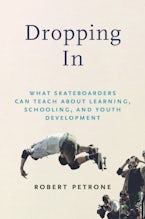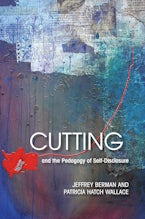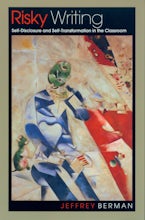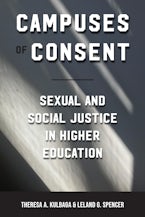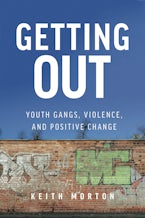- Home
- Empathic Teaching

Empathic Teaching
Education For Life
Published by: University of Massachusetts Press
424 Pages, x 1.10 in
Other Retailers:
During the past decade, Jeffrey Berman has published widely on the pedagogy of personal writing. In Diaries to an English Professor (1994), he explored the ways in which undergraduate students can use psychoanalytic diaries to deal with conflicted issues in their lives. Surviving Literary Suicide (1999) investigated how graduate students respond to novels and poems that portray and sometimes glorify self-inflicted death. And in Risky Writing (2002), Berman considered the ways teachers can encourage college students to write safely on a wide range of subjects often deemed too personal or too dangerous for the classroom, from grieving the loss of friend to confronting sexual abuse.
Empathic Teaching builds on that earlier work by showing how a pedagogy based on understanding the other can transform the experience of learning. Berman begins with a discussion of several well-known stories and films featuring literature instructors who exert a formative influence on their students, including Good-bye, Mr. Chips, The Blackboard Jungle, Up the Down Staircase, and Dead Poets Society. He then goes on to examine the pedagogical importance of empathy, trauma, and forgiveness in helping students cope with the ordinary and extraordinary challenges of everyday life. Subsequent chapters are devoted to an analysis of actual student writing—powerful, insightful, authentic essays about lived experience that reveal both intellectual and emotional growth.
In the book's final chapter, Berman considers the risks and benefits of empathic teaching, demonstrating how teachers can play a therapeutic role in the classroom without being therapists. Teachers who are regarded as trusting, supportive, and dependable, he argues, become attachment figures, influencing students to be more sensitive to and connected with their classmates' lives. Or, as Berman succinctly puts it, empathic teaching leads to empathic learning, an education for life.
Empathic Teaching builds on that earlier work by showing how a pedagogy based on understanding the other can transform the experience of learning. Berman begins with a discussion of several well-known stories and films featuring literature instructors who exert a formative influence on their students, including Good-bye, Mr. Chips, The Blackboard Jungle, Up the Down Staircase, and Dead Poets Society. He then goes on to examine the pedagogical importance of empathy, trauma, and forgiveness in helping students cope with the ordinary and extraordinary challenges of everyday life. Subsequent chapters are devoted to an analysis of actual student writing—powerful, insightful, authentic essays about lived experience that reveal both intellectual and emotional growth.
In the book's final chapter, Berman considers the risks and benefits of empathic teaching, demonstrating how teachers can play a therapeutic role in the classroom without being therapists. Teachers who are regarded as trusting, supportive, and dependable, he argues, become attachment figures, influencing students to be more sensitive to and connected with their classmates' lives. Or, as Berman succinctly puts it, empathic teaching leads to empathic learning, an education for life.
Jeffrey Berman is professor of English at the University of Albany. His books include Risky Writing: Self-Disclosure and Self-Transformation in the Classroom, Surviving Literary Suicide, and Diaries to an English Professor: Pain and Growth in the Classroom, all published by the University of Massachusetts Press.
"An extraordinarily absorbing and important piece of work. Jeffrey Berman is elaborating a vision of what it means to be an English professor today that is at once radically original and eminently practical. His previous books on personal writing have garnered widespread notice, and I am confident that this most recent breakthrough will attract even more readers and raise the cumulative impact of his oeuvre to a higher power."—Peter L. Rudnytsky, editor of American Imago and author of Reading Psychoanalysis: Freud, Rank, Ferenczi, Groddeck
"Readers must decide whether or not they feel qualified or are willing to invite . . . trauma into their classrooms. Thanks to Berman's extensive research and student writing examples that decision should not be difficult to make."—The CEA Forum
"Empathic Teaching appears to me to be an instant classic. The combination of Professor Berman's knowledge of literature and psychological theory, coupled with his extraordinary appreciation of the culture and inner worlds of his students is positively remarkable. In point of fact, this book is far superior to many of the texts Berman himself cites in his extensive research. If his students are lucky to have him, we, his readers, in and out of the world of education, are as well. I am, simply put, in awe of this volume!"—Thomas J. Cottle, author of A Sense of Self: The Work of Affirmation
"[A] wonderful and important book. It captures the intensity and singularity of what it means to teach and brings to life the struggles and life concerns of today's college students. To teach is to show: Berman's book shows the essence of a teacher who is profoundly engaged with the minds and emotional issues of his students."—Kay Redfield Jamison, author of An Unquiet Mind and Exuberance: The Passion for Life




